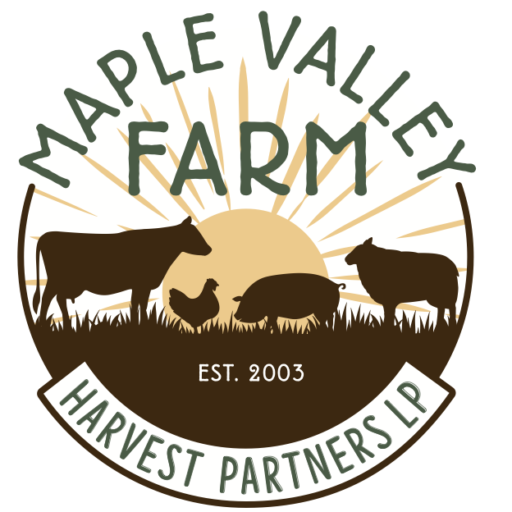Fools for Flavor
In his book The Dorito Effect: The Surprising New Truth About Food and Flavor, Mark Schatzker reveals what we’ve known here on the farm for a long time: Just like animals, our bodies are designed with the ability to choose foods based on the nutrients we need.
We’ve observed cows, sheep and goats choosing particular plants in the pasture to satisfy the needs of their own species, stage of life, body condition and even to correct various medical conditions. Release animals into a new pasture, as we do daily, and they immediately seek out flavors that provide the nutrients their bodies need.
In his book, Schatzker shows how the artificial flavorings in the foods people eat trick their bodies into thinking the food contains needed nutrients when, in fact, it doesn’t. Before artificial flavors were introduced in the 1950s, each food had to stand on its own nutritional merit. Foods with poor nutritional qualities just didn’t taste good and people would reject them. But with the advent of artificial flavors (and so-called “natural flavors,” which are just the same chemicals obtained from natural sources) people have begun consuming large amounts of low nutrient density food. And that’s a recipe for an obesity epidemic.
Artificial flavors deceive our bodies into thinking that a food is filled with nutrients. However, when we eat it, we get empty calories and none of the nutrients we actually crave. In response, our bodies tell us that we need more nutrients. So what do we do? We eat more of this “great tasting” nutrient deficient “food.”
Pour Some Sugar on Me
But artificial flavors aren’t the only problem. If we’ve seen it once, we’ve seen it a thousand times: We and our family members, friends and neighbors (mostly unwittingly) feed ourselves and our children foods laced with sugar and corn sweeteners. Here’s the picture. It’s a family reunion picnic or a pitch in dinner. We parents fill the plates of our children with the main dishes–hamburgers and hot dogs with buns and condiments, potato salad, pasta dishes, baked beans, pickles, slaw and so forth. It turns out that every item on this list includes added corn sweeteners or sugar (even the beef patties might contain dextrose, a corn sugar.) Astonishingly, the children often find the “real food” dissatisfying and move rapidly to the dessert line before finishing their plate. It’s ironic, isn’t it, when we parents urge our children to eat their plate of high-carb and sugar-filled foods before getting dessert!
The added sugar makes an otherwise nutrient deficient food palatable (even crave-worthy) but leaves the body starving for nutrients! The result: more eating, more calories, less satisfaction and low nutrition. Obesity and chronic disease are sure to follow.
Veggie Tales
The solution, we’re told, is to eat a diet high in vegetables. Vegetables are healthy! This plea comes from the same people who told us for decades that eating foods high in cholesterol, such as eggs, raises our blood cholesterol (it doesn’t.) These are the same people who told us that we should ditch the butter and eat hydrogenated soy oil formed into butter-like consistency. And yes, they’re the same people who created the fraudulent “food pyramid” recommending a whopping 8 servings of carb-laden grain-based foods each day while strictly minimizing satisfying, nutrient dense foods such as meat and dairy products.
The truth is, vegetables, if grown properly in mineral-rich, living soil, can provide a host of important trace (and some macro-) nutrients. But keep in mind that vegetables are mostly water and tend to be far less nutrient dense than animal products. Also, remember that virtually all plants, including the garden veggies we love, have inborn defenses against animal (and people) consumption (Read the details here and here.) It’s important to practice traditional forms of cooking to minimize or protect yourself from these toxins. And finally, we’ve already cataloged the significant decrease in important vitamins and minerals in most vegetables grown nowadays as a result of our impoverished soils. The bottom line is that, while carefully selected vegetables are important in our diet, they aren’t a panacea that can replace nutrient-dense animal products.
The Mystery Solved
Linus Pauling, two-time Nobel prize winning biochemist, proclaimed, “You can trace every sickness, every disease, and every ailment to a mineral deficiency.” Way back in 1936, the U.S. Senate filed a report that acknowledged that our soils had already become so deficient in the proper minerals for raising animals and growing crops that foods, “being raised on millions of acres of land that no longer contains enough of certain needed minerals, are starving us–no matter how much of them we eat!”
While farming techniques have changed since then, at least one important thing hasn’t. Farmers are still rewarded according to the quantity they grow, rather than being paid for the nutritional quality of the food they produce. They add the primary chemical fertilizers of Nitrogen (N), Phosphorus (P) and Potassium (K) — “NPK” — to get the abundance and size they need for market, but our soils are still badly imbalanced in major minerals such as calcium and magnesium. And they’re missing a whole slate of essential trace minerals such as manganese, boron and molybdenum, to name just a few. Further compounding the problem is the widespread use of synthetic fertilizers such as superphosphates and herbicides like glyphosate (Roundup.) These tie up soil minerals for decades, making them unavailable for crops, livestock and the food you eat.
You can fix this problem right now by shifting your food expenses to local farmers who heal the soil, feed animals their species-appropriate diets and produce foods with high nutrient density.

